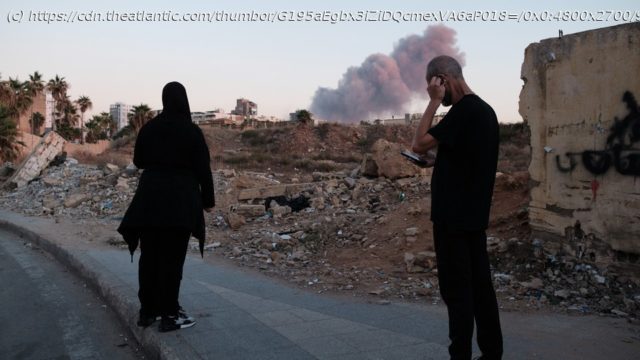Beirut responds to Nasrallah’s death.
As word spread on Saturday that Hezbollah’s leader Hassan Nasrallah had been killed in his underground Beirut bunker by an Israeli airstrike, people began quietly reckoning with the possibility that Lebanon’s political architecture might be about to shift for the first time in more than three decades. And that, in turn, raised the prospect that locked doors might soon open across the Middle East.
Those who have fought against Hezbollah—not just Israelis but also Lebanese from across the nation’s confessional divides, as well as Syrians and Yemenis—could see the tantalizing possibility that the Shiite movement’s dominance might be at an end. Many others worried that a sudden power vacuum might lead Lebanon back to the kind of civil war that tortured its people for 15 years before Hezbollah emerged in the early 1980s.
Nasrallah was more than a political leader. After 32 years in power, he had become synonymous with Hezbollah, the most well-armed non-state actor in the world and the linchpin of Iran’s tentacular “axis of resistance” to Israel and the United States.
You could feel the moment’s gravity almost as soon as the bombs struck on Friday evening—the biggest bombardment Israel has unleashed on Beirut since Hezbollah attacked Israel last October 8. I heard and felt the attack miles away from where they struck in the city’s southern suburbs. The deep sound like rippling thunder that shook the ground lasted several seconds. People on the street glanced anxiously skyward and clutched their phones, calling to check on their loved ones. Car alarms went off.
The rumors began almost instantly: that Nasrallah was dead, that he was in hiding, that a civil war was brewing. The same TV clips of the bomb site ran throughout the night and the next morning, showing a mound of flaming rubble and twisted steel. If Israel had, as it claimed, scored a direct hit on Hezbollah’s underground command center, believing that anyone inside could have survived seemed impossible.
Beirut was a city transformed on Saturday, the main squares full of dazed people who had fled all of the places Israel had bombed overnight, from Beirut to the Bekaa valley to southern Lebanon. Families huddled together, their eyes hollow and fearful. No safe places were left, it seemed. Some of the displaced were Syrians, who had fled the horror of their own country’s civil war a decade ago and were now left homeless again.
Nasrallah was such a central figure for so long—the most powerful man in Lebanon and Israel’s greatest foe; loved, hated, and imitated by anti-Western insurgent leaders across the Middle East—that his absence left many Lebanese feeling profoundly rudderless. There were occasional bursts of gunfire throughout the day. Whether it came from mourners or celebrators was impossible to say.






